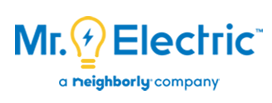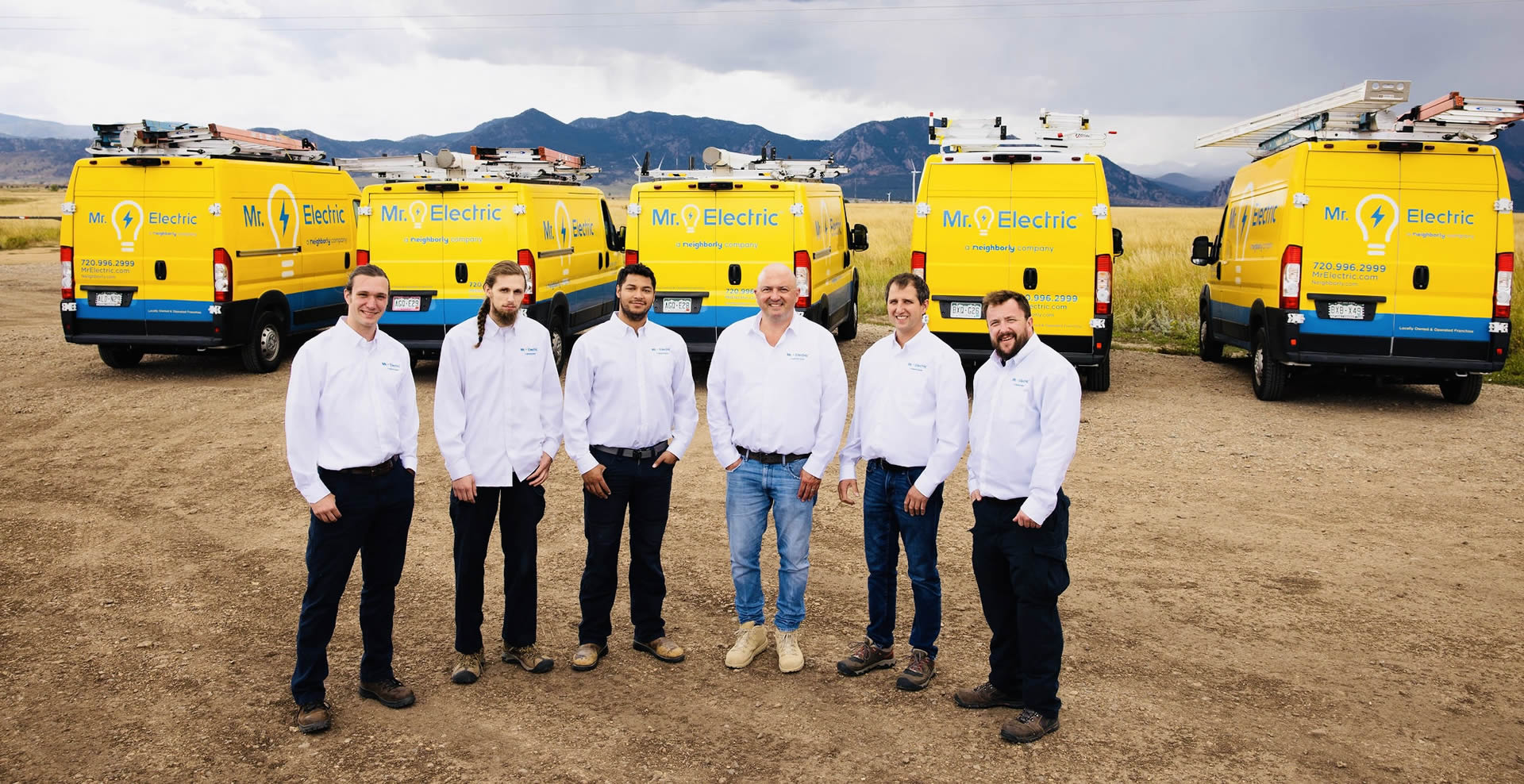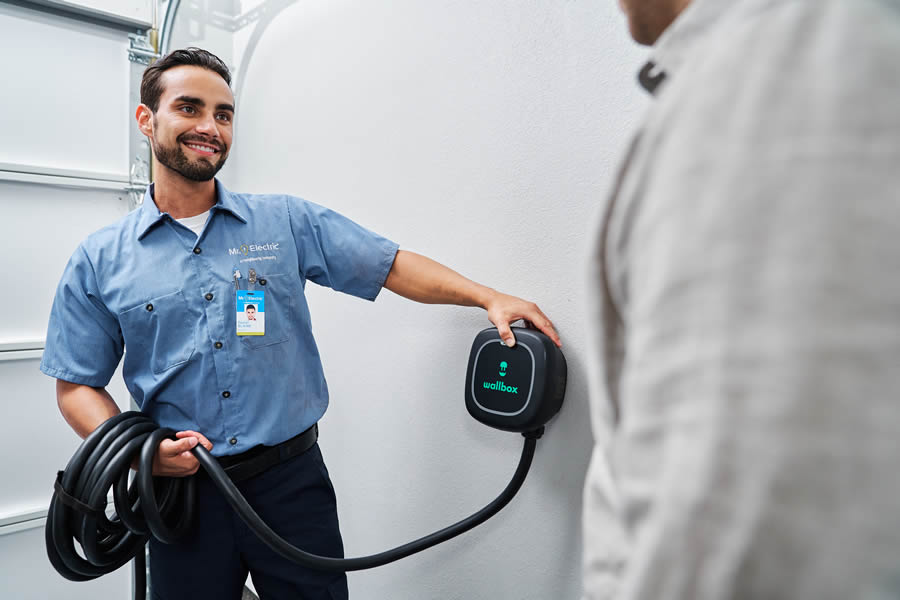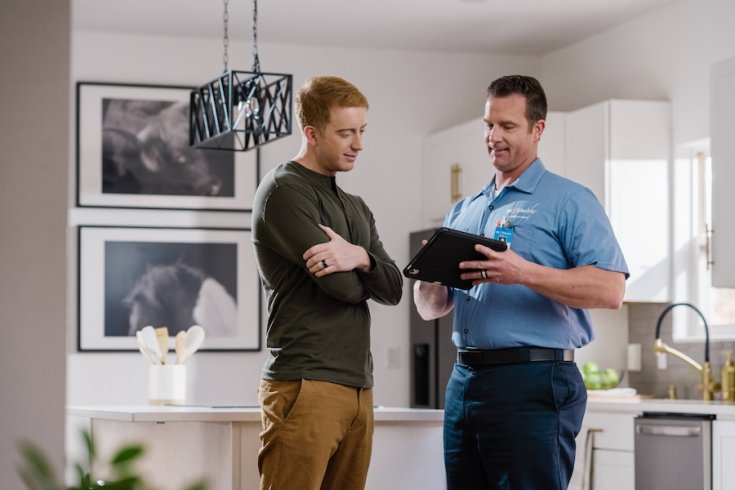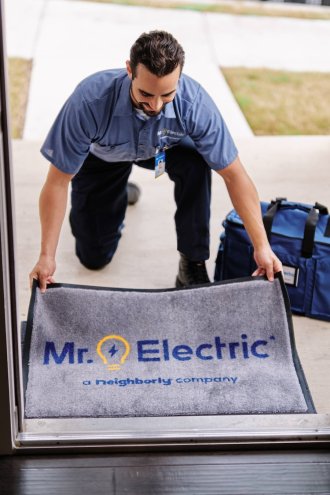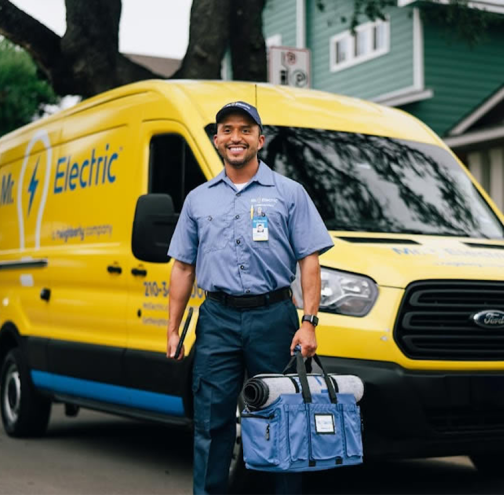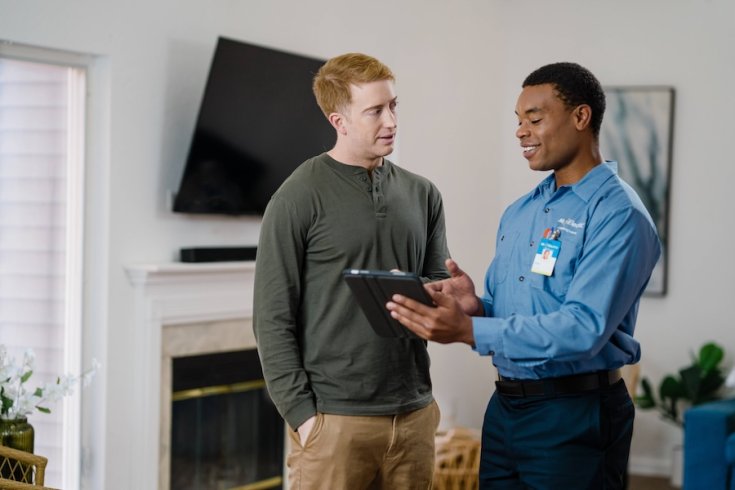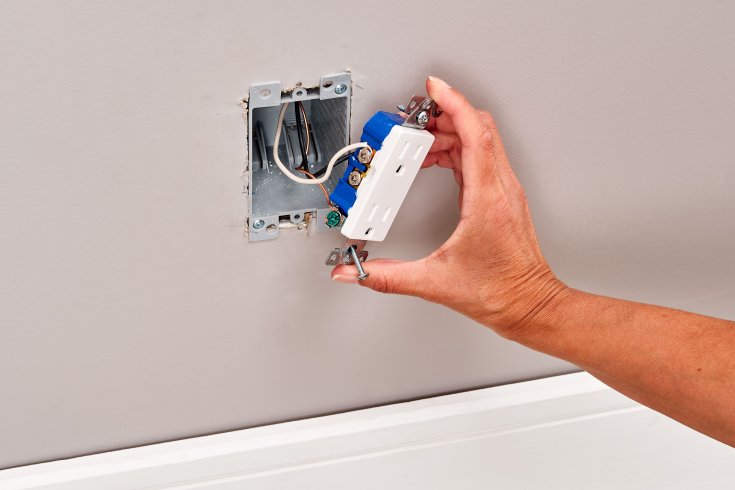So, you’ve got an electric vehicle (EV), or you’re thinking about getting one, and now you’re wondering if you can charge it at home. The short answer is yes, you can charge your electric vehicle at home! Mr. Electric explains everything you need to know about how it works and what you need for EV charger installation.
Understanding the Basics of Charging Your Vehicle at Home
Charging your electric vehicle at home is convenient. It’s kind of like charging your phone. You plug it in when you’re not using it, and it’s ready to go when you need it. However, unlike your phone, an electric vehicle requires more power and a particular setup to charge efficiently.
Home charging systems typically feature two main methods for power delivery - Level 1 and Level 2 charging.
- Level 1 Charging: Level 1 charging is the easiest and most straightforward method for your electric vehicle (EV). It uses standard 120-volt household outlets with a charging cable that comes with your car to plug directly in and charge at 120V. However, total charge time usually requires 20-40 hours, depending on battery capacity, and can take anywhere between 8-12 months, depending on battery capacity and size of car battery.
- Level 2 Charging: Level 2 charging requires Electric Vehicle Supply Equipment (EVSE) for faster charging times. A Level 2 charger uses 240-volt outlets similar to those in your dryer or oven, meaning this technique can fully charge your EV within 4-8 hours.
Set Up an Electric Vehicle Charger at Home
Installing a Level 2 charger at your residence significantly improves charging speed. Here is what needs to happen:
- First Step in Charge Installation Process: It is imperative that your electrical system can support an additional charge source. An affordable electrician is ideal for this as they will ensure all wiring and panels meet the code and can accommodate this new charging station.
- Hire an EVSE Installer: When your electrical system is ready, hiring an EVSE installer to set up your Level 2 charger may be essential. Some electricians offer this service. Alternatively, you could hire them directly and install everything together at once. Your installer can assist in selecting an ideal spot and ensure everything goes according to plan for the safe charger installation.
- Consider an Electrical Repair Service: If your electrical system requires upgrading, an electrical repair service could help improve it safely and ensure your EV charger functions optimally. While additional costs may arise in doing so, its value lies in safety considerations alone.
Costs of Installing an Electric Vehicle Charger at Home
Installing an EV charger in your home can vary in cost depending on several factors. Here are a few that might impact the final bill:
- Cost of Charger: Level 2 chargers typically cost several hundred dollars up to several thousand, depending on features and brand selection.
- Installation Fees: Costs can vary significantly when hiring an EVSE installer. Typically, you should expect to spend several hundred dollars for labor alone, and any electrical repairs or upgrades could increase that figure significantly.
- Permits and Inspections: Certain areas require permits and inspections before beginning electrical work, which can add costs but are essential to ensure everything is done safely and legally.
Charging at Home
There are multiple benefits associated with charging an EV at home:
- Convenience: Overnight charging means your car will be ready when you wake up. No special trips are required!
- Savings Opportunities: Home electricity rates tend to be less costly than public station chargers, and some utilities offer special EV rates for their owners.
- Environmental Benefit: By charging at home, you can use renewable sources like solar panels to maximize its eco-friendliness.
Maintenance & Safety Concerns
Once your EV charger has been set up, there are a few points you'll want to keep in mind for everything to run efficiently:
- Regular Inspections: Regular electrical inspections should be the norm for optimal charging system operation and safety. This helps ensure everything works effectively and is compliant.
- Repair Services: Should any issue arise within your home's electrical systems—like charging issues or wiring faults—contact an electrical repair service in Highlands Ranch as quickly as possible for proper resolution to minimize safety concerns and ensure complete peace of mind.
- Upgrades: As technology changes, updating your charger and your home's electrical system may become necessary. Working with an EVSE installer to implement these upgrades and ensure maximum performance and efficiency is critical to optimal charging results.
Tips for Efficient Charging
Consider these strategies for optimizing the effectiveness of your home charging setup:
- Charge Your Car Off-Peak Hours: Many utility companies provide discounted charging rates during off-peak hours (such as night), so charging your car off-peak hours could save you money and effort.
- Consider Utilizing a Smart Charger: Some Level 2 chargers feature smart features to assist with scheduling charging times, monitoring energy use, and keeping tabs on charging habits - this may save money and provide insight into your charging habits.
- Maintain Your EV: Proper maintenance will allow your electric vehicle to charge more efficiently, with regular tire checks and software updates making a noticeable difference.
Mr. Electric
Without question, charging your electric vehicle at home is possible! By understanding Level 1 and 2 charging techniques, procuring appropriate equipment with help from an EVSE installer from Mr. Electric, and considering any necessary electrical repair service needs, home charging becomes convenient, efficient, and cost-effective—go ahead, plug in your EV, and enjoy its journey!
